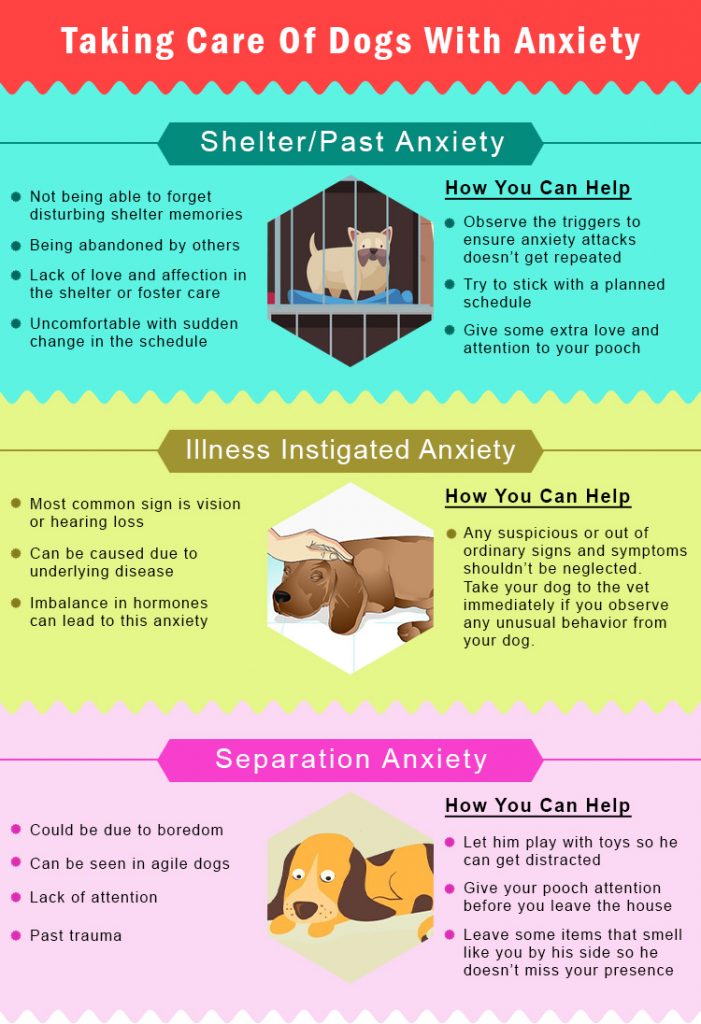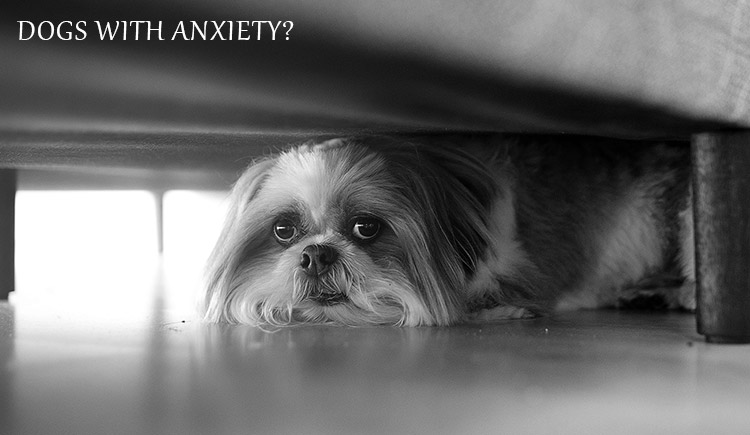It’s not unusual for dogs to get anxious. Anxiety is prevalent in humans as well as animals and there’s very little we can do about it. Some mental health issues like anxiety or depression hit you out of nowhere. The trick is to know what triggers it. If your dog looks frightened or anxious, observe what made him react in such a way. It could be a stranger that seems intimidating or the lack of presence of the dog’s favorite person. Besides, there are numerous reasons behind what causes anxiety in dogs, and today we’re going to discuss some major causes in detail.
It’s crucial to assist your dog to get out of such a dark and tormenting place in the corner of his mind.
Thus, let’s take a look at the reasons and types of situation that causes anxiety in dogs.
Shelter/Past Anxiety
Most dogs that are adopted from a shelter or rescue center have had a very rough past. Getting abandoned and surviving on fewer resources can have a major impact on the dog’s mental health. It’s the stray dogs that suffer a lot; getting into an accident, malnutrition and living off of food scraps from the trash can. It’s certainly not an easy life. That’s why, even when they get adopted into a loving home, they don’t entirely forget the incidents of their past.
Separation Anxiety
Separation anxiety is quite common in dogs. If you’ve recently brought a dog home, he might not understand why you leave the house for the most part of the day. Therefore, this leads to aggressive and destructive behavior in a dog even if you are out of his sight for 5 minutes. Separation anxiety mainly occurs because the dog has had being left abandoned in the past. Thus, that memory tricks him into thinking that even his new owner will repeat the same, resulting in anxious behavior.
Illness Instigated Anxiety
There are some diseases that instigate anxiety in dogs. Anxiousness and depression are somewhat the bi-products of such diseases. The examples of these diseases are hyperthyroidism, encephalitis and diabetes where if left untreated, it can cause great mental trauma and debilitate your pooch’s health. Signs and symptoms will be observed in the early onstage of the disease, causing sudden behavioral changes in dogs. Therefore, whenever you observe symptoms that don’t add up to the situations, you need to take your pet to the vet so if there’s any risk of such disease, the vet will diagnose it and suggest treatments according to it.
Symptoms of Anxiety
Symptoms of all kinds of anxiety are somewhat interlinked and similar. Below are the symptoms you need to be on a lookout for if you suspect your dog has anxiety.
- Destructive or aggressive behavior like ripping off or shredding furniture and curtains.
- Loud and excessive barking/howling.
- Pooping or peeing in the house.
- Restlessness behavior.
- Digging, scratching, licking or some kind of compulsive behavior.
Treatments for Anxiety in Dogs
The treatment of anxiety mainly depends on the severity of it. The most common symptoms in diabetes and thyroid are depression, anxiety and hormonal imbalance. The key point is that these signs appear out of sudden, so it’s easier to pick out the difference in the dog’s behavior. The vet will initially run some basic blood tests so any kind of underlying disease can be diagnosed. Thereafter, treatment will be given to balance out the hormones and control the disease.
However, if the anxiety is related to past trauma or any other non-medical reason, the vet will suggest the treatment according to it. Products like Adaptil Spray and Adaptil collar are excellent for managing stress and anxiety in dogs.






